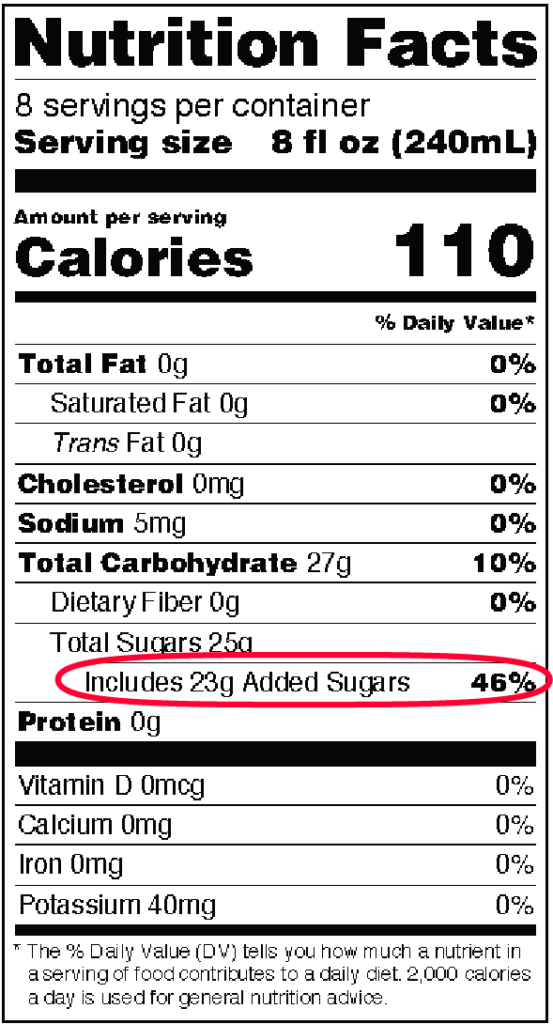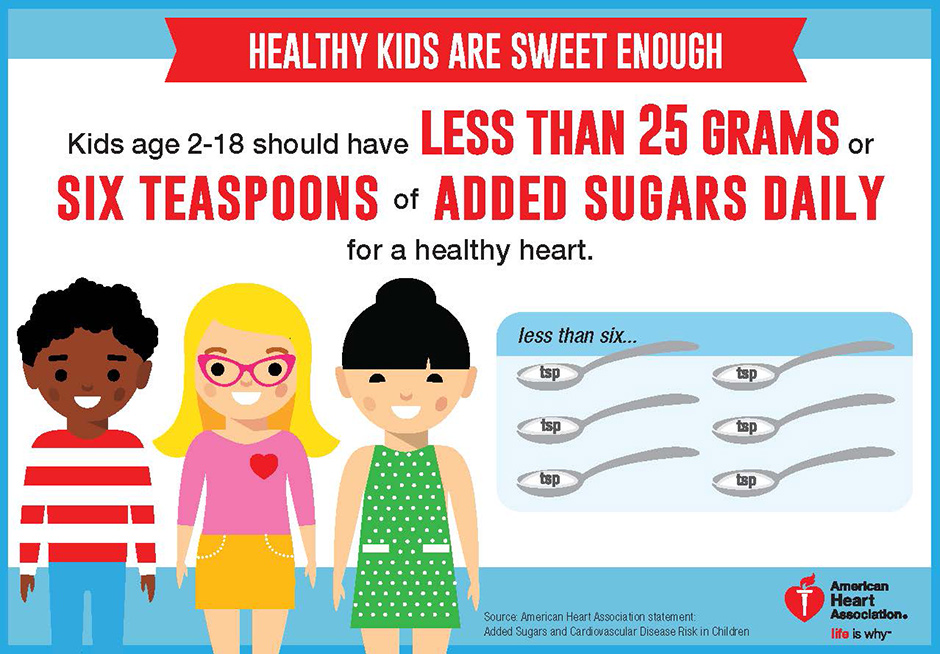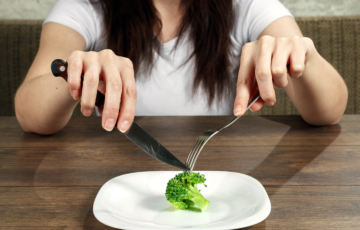
We’ve all heard that healthy eating is important. But did you know that the eating habits your child develops now can have a lasting impact for years to come? Research shows that how your child eats and drinks in their early years can set the stage for a lifetime of healthy eating and living. With all the different terms and tactics used in food packaging though, sometimes it can be hard to figure out which foods are actually healthy.
Added sugar vs. natural sugar
As you look for healthy foods and recipes for your family, it’s important to consider added sugars. Natural sugars are found in many foods (e.g., fruits, dairy), but added sugars are supplemented to foods during the manufacturing process. Too much added sugar over a lifetime can increase a person’s risk for a number of ailments, including:
- Obesity
- Heart disease
- High cholesterol
- Fatty liver disease
- Dental caries
Fortunately, recent changes to the nutrition facts label require a line for added sugars, making it easier to identify whether sugar in foods is naturally occurring or has been added.

How much sugar is too much?
Most of us enjoy having a special treat from time to time, but at what point does added sugar start posing an increased risk for developing health problems? Here are the current recommendations:
- Infants and toddlers under age 2 should get 0g of added sugar per day.
- Toddlers and children over age 2 should get less than 25g of added sugar per day (equal to about 6 teaspoons).

Source: American Heart Association
Simple ways to cut back
Here are a few ways to help limit added sugars in your child’s diet:
Eat fresh and whole foods
Sugar is often added to processed and prepackaged foods. Eating fresh fruits and vegetables, and other foods that are unprocessed or minimally processed will help cut out added sugars.
Eliminate juice and soda
Beverages like sports drinks, sweetened teas, fruit juices, or diet sodas are not advised. The best beverages for your child are water and unflavored milks. In fact, the American Heart Association recommends children should not get more then 1 cup per week of any sweetened beverage.
Compare food labels
Start looking at and comparing food labels. Much of the added sugar in our diets comes from sneaky places like ketchup, condiments, dried fruit, packaged foods, and sometimes even seemingly healthy foods like yogurt and peanut butter. Start comparing food labels so that the options in your home have low or no added sugars.
Limit sugary treats
Make treats an exception. We all enjoy sharing treats with our loved ones, but make these sometimes foods instead of everyday foods.
Keep at it!
In the beginning it might seem hard to make these changes to your diet. But once you discover some healthier options, you’ll quickly find that this becomes part of your new family routine.
Happy eating!
Additional reading
- Added sugar in kids’ diets: How much is too much? – American Academy of Pediatrics (aappublications.org)
- How to Reduce Added Sugar in Your Child’s Diet: AAP Tips – HealthyChildren.org
- Toddlers consuming nearly as much sugar as older kids – ContemporaryPediatrics.com
- Added Sugars – American Heart Association
Related Stories



